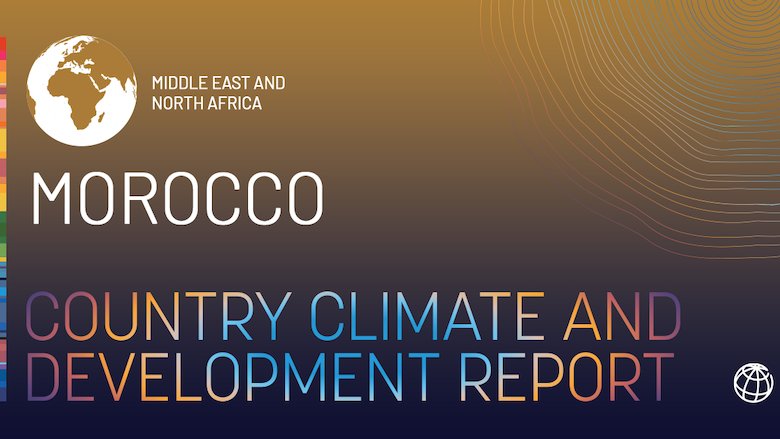Climate change poses a serious threat to Morocco’s economic growth and human potential but with the right investments and policies in place, a more sustainable future is possible.
A new World Bank diagnostic tool, The Country Climate and Development Report explores the linkages between climate and development and identifies priority actions to build resilience and reduce carbon emissions while supporting economic growth and reducing poverty.
The report identifies three priority areas – tackling water scarcity and droughts; enhancing resilience to floods; and decarbonizing the economy. The report also looks at the cross-cutting issues of financing, governance, and equity.
The underlying message in the report is that if Morocco invests in climate action now and takes the appropriate policy measures, the benefits will be immense. Ambitious climate actions will help to revitalize rural areas, create new jobs and position the Kingdom as a green industrial hub, while also helping Morocco to reach its broader development goals. The report identifies key pathways to decarbonize the economy, reducing reliance on fossil fuels and massively deploying solar and wind power.
The report estimates that total investment needed to put Morocco firmly on a resilient and low carbon pathway by the 2050s would be around $78 billion in present dollar value. The good news is that these investments could be gradual and that with the appropriate policies in place, the private sector could shoulder much of the cost.
